Can you see an UV image on an ID?
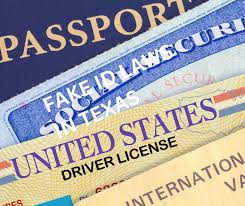
Can You See a UV Image on an ID?
Introduction: Understanding UV Images on IDs
In today's world, security features on identification cards (IDs) are becoming increasingly sophisticated. One of the most advanced and widely used security features is the UV image. But can you see a UV image on an ID with the naked eye? The short answer is no; these images are designed to be invisible under normal lighting conditions. In this article, we'll dive into how UV images on IDs work, how you can view them, and why they are essential for ID security.
What Is a UV Image?
A UV image (ultraviolet image) is a hidden picture or pattern printed on an ID using special UV-sensitive ink. This ink becomes visible only when exposed to ultraviolet light, commonly known as black light. These images are a crucial part of the anti-counterfeiting features used on official documents like driver's licenses, passports, and other forms of identification.
Why Are UV Images Used on IDs?
The primary reason UV images are used on IDs is to prevent forgery and ensure the authenticity of the document. While it's possible to replicate the visible parts of an ID, copying the hidden UV features is significantly harder without specialized equipment. UV images on IDs add an extra layer of security that makes it difficult for counterfeiters to reproduce.
Can You See a UV Image on an ID?
So, can you actually see a UV image on an ID? Technically, no. A UV image is not visible under regular lighting conditions. The only way to see it is by using a UV light or black light. When the ID is placed under a UV lamp, the hidden image will glow, revealing the security feature. Without this light source, the UV image remains invisible to the naked eye.
How to View a UV Image on an ID
To see a UV image on an ID, you need a UV light. Many security personnel, such as bouncers, airport staff, and law enforcement, use handheld UV scanners to quickly check the authenticity of an ID. Some IDs might also contain holograms, microtext, or other features that become visible under UV light, enhancing their security.
If you're wondering, "Can I see a UV image on my driver's license?" the answer is yes, but only with a UV flashlight or blacklight. You can purchase these lights online or from hardware stores if you're interested in testing your own ID's UV features.
Other Security Features on IDs
Apart from UV images, IDs have several other security features. Some of the most common include:
- Holographic images: These can be seen under normal light, but they change or move when tilted.
- Microtext: Tiny text printed on the ID that is only visible under magnification.
- Laser engraving: Personal information is engraved into the card, making it hard to alter.
- Magnetic strips and barcodes: Contain data that can be scanned for verification.
While these features are visible in regular light or can be scanned electronically, UV images remain a hidden feature, detectable only with UV light.
Why Can't You See UV Images Without Special Light?
The science behind UV images lies in the use of UV-reactive inks. These inks absorb light from the ultraviolet spectrum, which is invisible to the human eye. Once the ink absorbs UV light, it emits visible light, which is why the image appears to "glow" when exposed to UV lighting. This invisible ink makes counterfeiting even more difficult, as standard printing techniques can't replicate UV-reactive properties.
Are All IDs Equipped with UV Images?
Most government-issued IDs, such as driver's licenses and passports, include UV images. However, not all IDs have this feature. It depends on the issuing authority and the level of security required. For instance, IDs issued in regions with high rates of forgery often incorporate multiple security layers, including UV images, to deter counterfeiters. If you're unsure whether your ID has a UV image, check with a UV flashlight or consult the issuing agency.
Conclusion: Can You See a UV Image on an ID?
In summary, while UV images on IDs provide a crucial security feature, they are invisible under normal conditions. To view a UV image on an ID, you need access to a UV or black light. These features play a key role in preventing identity fraud and ensuring the integrity of government-issued IDs. If you're involved in verifying IDs, investing in a UV light will allow you to check for these hidden security features.
For anyone curious about their own IDs, it's worth giving it a try. Grab a UV light and see if you can uncover the hidden UV images on your driver's license or passport!
Related Keywords and Phrases:
- UV images on driver's licenses
- Blacklight to see UV image on ID
- Can UV images prevent ID forgery?
- How do UV images work on IDs?
- Are UV images visible without UV light?
- Ultraviolet images as a security feature on IDs
- Hidden images on passports
- Detecting UV features on ID cards
 UtahFake ID
UtahFake ID
 New YorkFake ID
New YorkFake ID
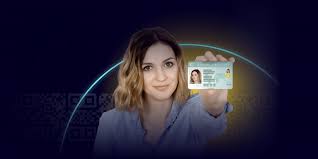 MinnesotaFake ID
MinnesotaFake ID
 KansasFake ID
KansasFake ID
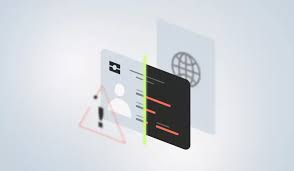 NevadaFake ID
NevadaFake ID
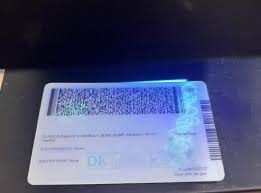 IllinoisFake ID
IllinoisFake ID
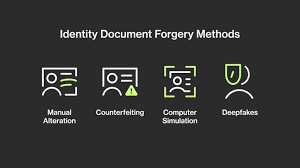 FloridaFake ID
FloridaFake ID
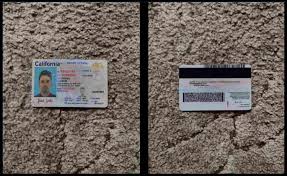 MississippiDLFake ID
MississippiDLFake ID
